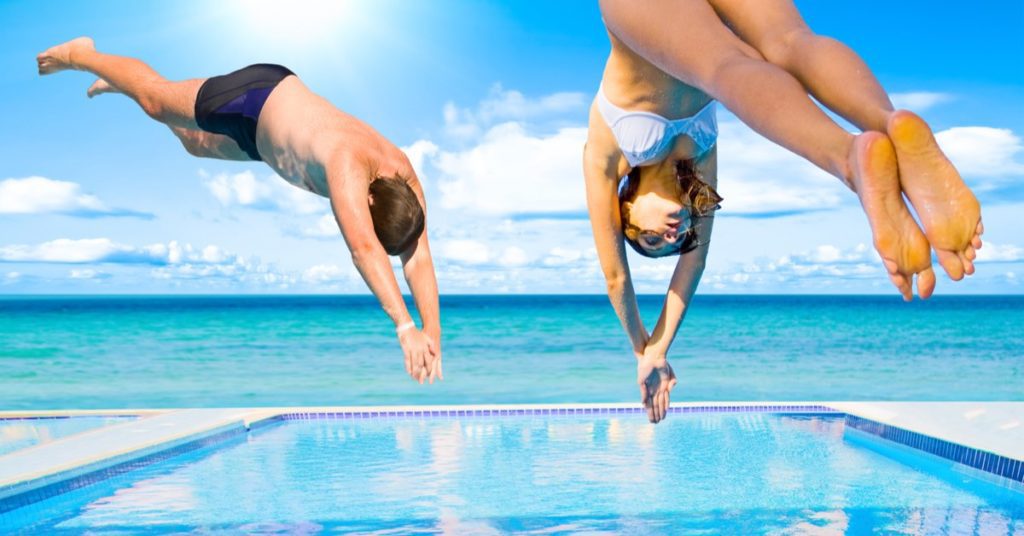A Guide to the Florida Public Swimming Pool Regulations
Did you know that if the pH balance in a pool is not correct, bacteria in the water can cause you to become sick?
Florida public swimming pool regulations are in place to ensure that commercial pools are safe and healthy, free of illness or injury. There are several types of regulations including:
- Laws about how the pool is constructed according to building codes
- Regulations on signage and equipment to dive and swim safely
- Rules surrounding maintenance and upkeep of commercial pools
Use this guide to learn about Florida pool laws so that you can stay safe and healthy, and operate legally.
Pool Construction: Florida Public Swimming Pool Regulations
Swimming pool laws can be complex but are essential to decipher and enact in your construction process.
There are multiple building codes, Florida statutes, and administrative codes to be sure to uphold when constructing a public or commercial pool.
Code 514.031(1)(a) requires relevant and updated construction plans submitted for approval before beginning the building process. This is to ensure that the pool will be in accordance with local statutes.
Pool Safety: Swimming Pool Rules
There is to be no diving in pools that are not legally diving-approved. This warrants and requires the use of a “NO DIVING” sign on the premises.
Each pool must have an essential set of safety equipment to help in the event of an injury or in case of drowning. The safety equipment required by the state of Florida includes:
- 16-foot rescue pole
- Shepherd’s crook on each side of the pool
- Rope and float line
- 50-foot throw line
- 18-inch Life ring buoys on each end of the pool
Depth markings along the pool are required by law, to be denoted in feet and inches. This signage should be large, visible, and against a contrasting background.


Pool Maintenance: Health and Cleanliness
It is essential to maintain a pool that is free of bacteria and treated chemically to prevent germs. It is also important to be sure not to overdo the chemicals, leading to potentially harmful effects for swimmers.
The pH balance is a perfect place to start.
A pH that kills bacteria without harming swimmers should be approximately 7.2-7.8. Chlorine is used as the primary germ-destroying chemical in commercial, public, or residential freshwater pools.
Whatever chemicals are chosen to keep the pool up to code must be tested in accordance with NSF-ANSI standards. The pool must be closed for a short period after chemicals are added so that they can properly spread and distribute.
Trust Pros for Quality Pool Construction
There are a lot of considerations to keeping a pool healthy, safe, and legal.
If you want to abide by all the state rules and laws in Florida, you’ll want to ensure that you are working with qualified professionals for construction, maintenance, or otherwise.
Contact Cox Pools today for top-tier pool construction services for commercial and residential pools. Our experts know Florida public swimming pool codes and regulations as well as rules surrounding private and commercial pools.



